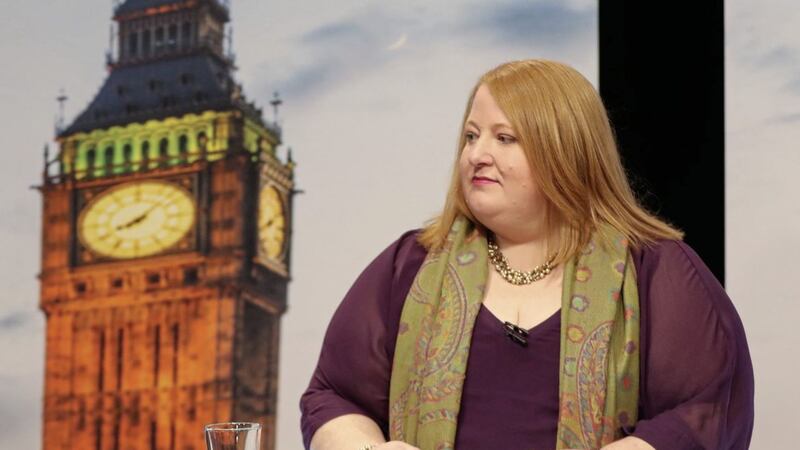Christmas goodwill does not mean avoiding judgments. There are enough women in the political world here now, if not yet a proportionate share, to think about the lessons to be learned.
The DUP need is greatest but theirs is a parallel universe. Sinn Féin call themselves realists. Scarred British Labour has a notably female line-up of would-be new leaders and much good it will do Rebecca Long-Bailey that she is the old guard’s ‘chosen’ one. Surely republicans here are observing, and reflecting? But heads may still be turned by that win in North Belfast.
The less programmed well know they won thanks to an able candidate with a powerful back story, no SDLP candidate, Catholics angered enough by Nigel Dodds to vote Sinn Féin. Plus a share of unionists finally disgusted by the DUP.
Many SFers are painfully aware the walkover in Foyle was partly because of an ill-chosen candidate. Many must also know their leaders are a duo of ill-matched ability, the decent, amiable northerner selected for loyalty, roots, gender instead of merit.
Election lessons generally are perhaps already notable in the Stormont talks, as in attitudes towards the (wholly justified) health service industrial action. Today’s dominant female players across the parties will take more time to assess. (Fewer mediocrities than among the men, certainly; in most parties women have to be better to be selected in the first place.)
But working in first from the sidelines, it is entirely lovely to see so many now writing and broadcasting about politics. Flashbacks to being the only woman at off-the record dinners or one of a handful at press conferences are like yellowed photographs. Among the few other women then were early losses, too-young deaths; Marion Sawey of this paper, Ann Purdy, political opposites and also friends, ace reporters.
Early new faces for the most part were foreign correspondents, really, British, a few French. Today’s spread of specialisms across social and older media happened so gradually and then so fast it is hard to chart. Now there are occasionally more women than men in political programmes (thanks to a few daring and usually female producers), including the studio, floor-managers, sound. Hey! The lights stay on. No big hand comes through the ceiling to re-arrange the line-ups.
The emergence of female politicians is more straightforward. A very few wealthy women were the exception in unionism, nationalist politics completely male. Forever to be recognised by first name alone, Bernadette Devlin made history in several ways; blazing oratory, organiser by inspiration rather than party construction.
Brid Rodgers, elegant as she was sharp, stood out among the rumpled men who banded together in the SDLP, after a fashion, to replace the old nationalists. It is probably true that in the political vacuum of the Troubles her talent was under-celebrated. By the time the SDLP chose its first woman leader, the overwhelmed and underwhelming Margaret Ritchie, it was well on the slide.
The Adams-McGuinness peacetime leadership meant republicans keen to sound ‘progressive’ began boasting of having able women at the top or close to it. They certainly never held the top positions. Then came the glamour of Toireasa Ferris, smart but perhaps ambivalent about staying in the front row. Then the era of Mary Lou.
How can republican women bear being anointed? Even the formidable McDonald needed old guard approval and still had to shout ‘Tiocfaidh ár lá’. The boys in the backroom and the old guys set her up with Michelle O’Neill, their sense of entitlement glaring like the moves to have Long-Bailey succeed the trounced Jeremy Corbyn. Adams and McGuinness escaped the trouncing. But their lustre had already gone.
McDonald speaking, O’Neill mute beside her as any adoring political wife of the past, is not a good look. All the worse in the new age of Naomi Long, Claire Hanna, the unselfish and astute Clare Bailey; women who speak their own words.
Happy Christmas, one and all.








